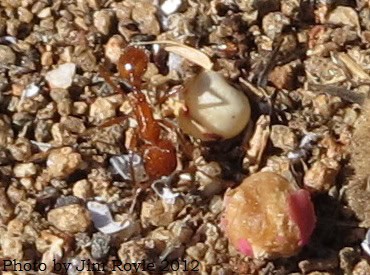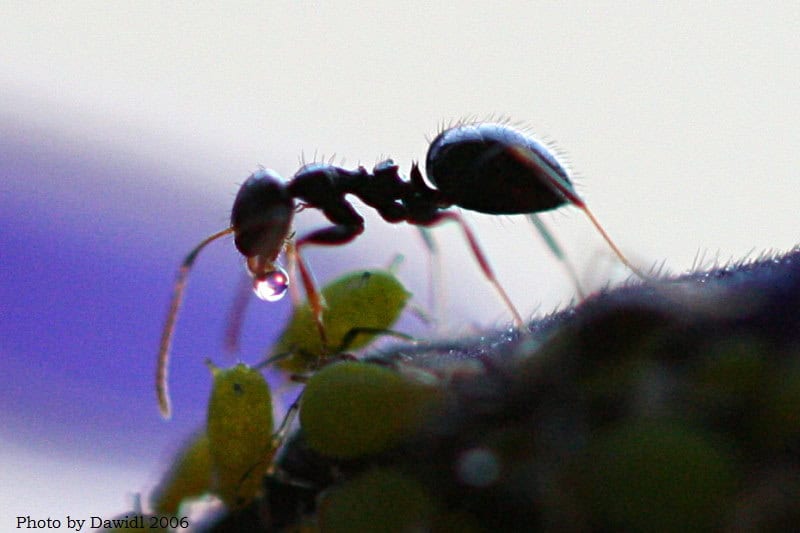How Important are Ants in the Environment?
Ants can be beneficial to the environment in a variety of ways. Ant colonies aerate and enrich the soil, creating a stable ecosystem by recycling dead animals, insects, and decaying matter, placing nutrients back into the soil.
Ant tunnels enhance water infiltration and circulate air in the ground which is beneficial not only to the soil, but plant roots as well. Ants also help with pollination by crawling over one flower to another; in the home and outside, ants are natural pest control agents for termites (ants eat them).
Certain species such as Seed-harvesting ants collect and unwittingly spread seeds, providing a new harvest of plants. When the seeds they have store inside the mound sprout, harvester ants toss the sprouted seeds into rubbish heaps around the mound. A few culls take root and grow. As beneficial insects, ants eat pests which are harmful to crops and orchards.

Ants are beneficial in the garden. Ants are not a significant garden pest and can actually be helpful; they hunt, herd, and farm with amazing organization. In the garden they destroy harmful pests to your plants by killing small larvae and newly hatched plant-eating bugs. Ants also kill a good percentage of flies, making ants more effective than some pesticides!
The typical garden variety ant doesn’t eat plants or actively destroy them like caterpillars do. Their main source of food is sugar, usually found in nectar, sap, or the honeydew excrement from aphids. Garden ants will kill off pests like caterpillars and the ants themselves are food for birds and lizards which will encourage wildlife to flourish in your garden.

Ants are Farmers by Nature: Ants and aphids have a special symbiotic relationship; ants will collect aphids in your garden before they can destroy the plants in order to obtain food from the aphids. In return, the aphids are provided security by the ants against predators. This culling of aphids is called “farming” or “aphid-herding.” Aphids carry a sweet, honey-dew type liquid in their bodies that ants love. Ants love it so much that they actually keep a “corral” of aphids to have the sweet honey liquid whenever they desire it.
When an ant is hungry, she taps the aphid with her antenna or gently strokes the aphid to let it know she would like some honeydew. The aphid then excretes the honeydew to feed the ant. Ant “farmers” are able to keep a consistent supply of honeydew on hand for the colony to enjoy. The “unbeneficial” part of ants in the garden is if aphids are a real problem on the majority of your plants; then you’ll need to get rid of their protectors – the ants!
Got Ants? Call today at 1-800-986-1006 for help with an ant infestation. You’re also welcome to complete our contact form and a caring Hearts Pest Management representative will contact you shortly.
